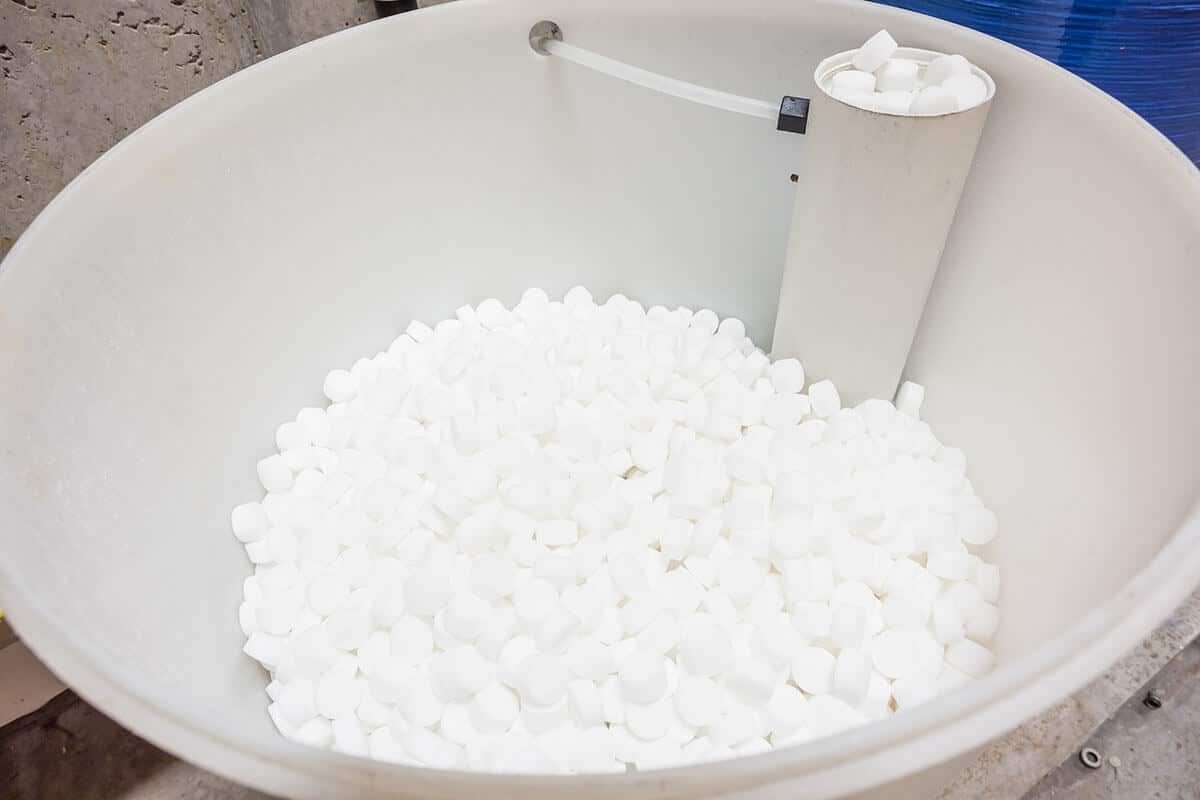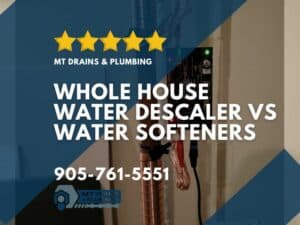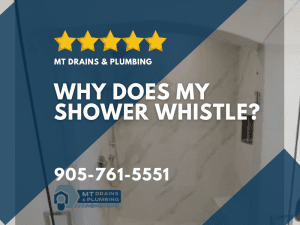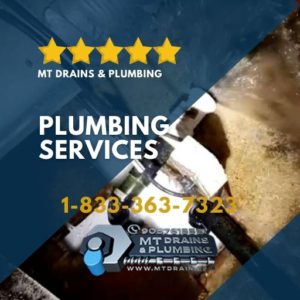A water softener is a filtration system that works through a process known as ion exchange. It eliminates excess levels of magnesium and calcium from the water and softens it.
If the question that comes to mind is: Do I need a water softener? Then you should know that there is no universal answer. There are no specific requirements for homeowners to install one, but they may choose to do so.
In this article, we’ll show you how to identify the signs of hard water that may necessitate a water softener.
What Is Hard Water?
The hardness of water is measured in grains per gallon (GPG.) If your water measures between 3.5 to 7 GPG, you have moderately hard water. A range between 7 to 10.5 GPG represents somewhat hard water. Finally, everything above 10 GPG is considered very hard water.
If you’re not sure how to tell where your water stands on this scale, you can purchase a test kit in a hardware store and check for yourself. However, to get the most accurate reading, it’s best to ask a water softener company to perform the test.
But even without these tests, you are likely going to be able to tell that your water is hard and that you might need a water softener. Here are the clues to watch out for:
You Will Notice Staining
Hard water contains dissolved metals and minerals, which can create unsightly and often persistent stains on your toilets, bathtubs, and sinks. You might have noticed the scaly deposits on white ceramics and around faucets.
Most people choose to deal with the symptoms and find ways to clean the stubborn stains, but that won’t fix the problem in the long run.
Scale Build-Up in Appliances
Scale or limescale is the mineral deposit you usually see in glassware, cutlery, coffeepots, teapots, and dinnerware. If you’ve ever tried to remove that chalky residue, you know that it’s no easy feat. Just imagine what that does to the household appliances that use water.
Washing machines and dishwashers can also accumulate limescale, and that leads to costly repairs. If you notice the scale on your glasses and your appliances are malfunctioning, perhaps you need a water softener.
Your Utility Bill Goes Up
If your utility bills are increasing, perhaps it’s time to ask yourself, “Do I need a water softener?” It would be a good idea to check the plumbing in your home and see if there are signs of scale. Even if you don’t notice it anywhere else.
The fact is that limescale affects the function of water heaters and boilers. If nothing else has changed in your household consumption of water and electricity, perhaps it’s the hard water creating the damage that results in higher monthly expenses.
The Laundry Looks Faded
It’s one thing to worry about the limescale on your coffeepot, but it’s another never to have to deal with gray or faded laundry. If your home has hard water, it’s possible that your linens and other fabrics experience premature wear and tear.
The hard water causes detergent and soaps to be less effective overall. They leave a residue on the textile that causes fading and makes them look greyish. This is another issue where a water softener system can help.
Your Skin and Hair Are Dry
One of the main reasons homeowners choose to purchase a water softener is to avoid dry skin and hair issues. The excess levels of minerals in the water have a damaging effect on your skin, making it flaky and often quite itchy. Some people even experience irritation and inflammation.
The hard water prevents soap from dissolving entirely. As a result, the soap residue can linger on the skin, preventing you from eradicating dirt and bacteria. As for hair, that same residue can make your hair look dull and extremely dry.
How to Use a Water Softener Correctly
If you opt to install a water softener in your home, it’s essential to know how to use it correctly. The first order of business is to follow the manufacturer’s instructions thoroughly or call a professional company to do it for you. If you’re not absolutely certain that you have hard water, make sure to check.
Also, if your water supply comes from a community water system, you might need to see if they already use a water softener. In that case, you won’t need one.
Adding a home-based water softener system on top of that could cause corrosion issues. Once you know the water’s hardness level, here are a few other important guidelines to keep in mind:
- Make sure that the water softener is set according to the hardness of your water supply. If it’s too high, it’s possible it will waste water and end up costing you more than it should.
- If your home has newly installed copper plumbing, you need to let the water run for at least three weeks before turning on the water softener system. This will prevent excess copper consumption in your home.
- You don’t have to soften everything. Some people choose only to soften the showers or laundry hookups.
Benefits of Water Softener System
Installing a water softener in your home will likely remove any unwanted tastes from your drinking water. If that was the reason why you’ve avoided drinking water at home, you’re looking at saving money by not buying bottled water.
When combined with the savings you’ll make by not having to repair the boiler or water heater, a water softener sounds like a valid investment. Ultimately, having soft water in your home means healthier skin and hair and definitely less grey and faded laundry.
Consider a Water Softener for Your Home
If you live in an area with very hard water, then it’s likely that you’ll see the immediate benefits of installing a water softener. The scale on your dishes and appliances might be too difficult to remove, and your skin and hair have suffered enough.
Make sure to test how hard the water is first and then decide if the water softener seems like a worthwhile investment. Ultimately, soft water is always better than hard water, but there is such a thing as water that’s too soft. Therefore, consult with the experts before you make a decision.






